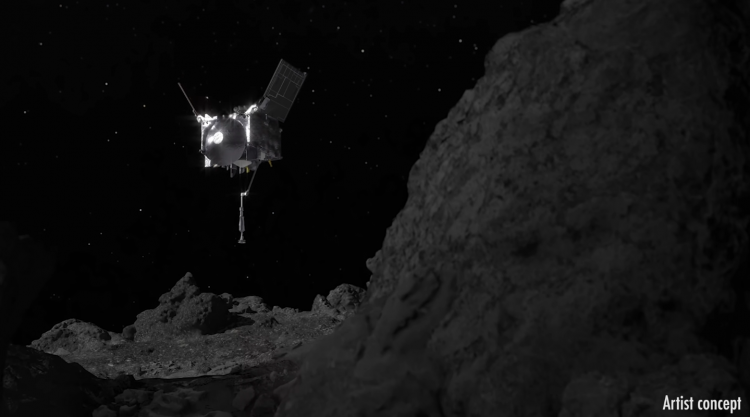NASA Spacecraft Returns After Collecting Samples From Asteroid

On Monday, a NASA spacecraft that gathered samples from an asteroid started its two-year return journey to Earth. The OSIRIS-REx spacecraft is attempting to complete a mission to explore Bennu, a carbonaceous skyscraper-sized asteroid 200 million miles (320 million kilometers) from Earth, survey its atmosphere, gather samples, and return them to Earth.
As the spacecraft pushed away from the comet, whose acorn-shaped body emerged in the early days of our solar system, staff at the OSIRIS-REx control room in Colorado rejoiced. In 2018, OSIRIS-REx arrived at Bennu.
According to Dante Lauretta, the OSIRIS-REx mission's principal investigator, the spacecraft discovered fragments of hydrogen and oxygen molecules trapped in the asteroid's rocky atmosphere, which are part of the formula for water and hence the possibility for existence.
It would take about two years to return to Earth. The spacecraft will then eject a capsule carrying the asteroid samples, which will land in a distant region of Utah, according to Nasa.
NASA says samples will be sent to science labs around the world, but that 75% of the samples will be stored at the Johnson Space Center in Houston for future generations to explore of inventions that haven't been invented yet.
The OSIRIS-REx spacecraft, which cost about $800 million and is around the size of a minivan, was launched in 2016 to collect and return the first U.S. sample of pristine asteroid materials. The only other nation to achieve this achievement is Japan.
The sample return capsule would detach from the spacecraft and infiltrate the atmosphere of the Earth. The Utah Test and Training Range will gather the capsule containing the sample. Scientists will be able to understand more about the Solar System's creation and evolution, as well as the early stages of planet forming and the origins of organic compounds that contributed to the creation of life on Earth, thanks to the material returned.
Asteroids are among the 4.5-billion-year-old remnants of the solar system's origin. According to scientists, a sample may contain clues to the roots of life on Earth.



